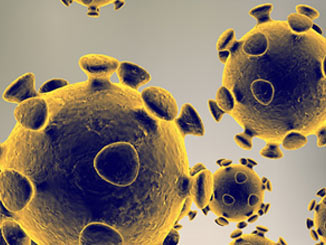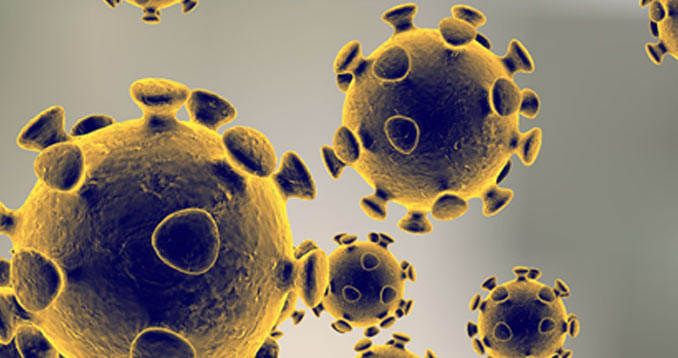

There is a lot of anxiety nowadays about immune-o-health with COVID Pandemic. In a recent study, Journal of the American Medical Association, examined 489 people who had been tested for COVID-19 had been tested for vitamin D deficiency in the year prior. The results showed that 19% of the vitamin D deficient people tested positive for COVID-19, compared to 12 % of the vitamin D sufficient people.
“The multivariable analysis suggests that persons who are likely to have deficient vitamin D levels at the time of COVID-19 testing were at substantially higher risk of testing positive for COVID-19 than were persons who were likely to have sufficient levels,” the researchers state.The researchers do note there are several limitations to their research, including the idea that people with vitamin D deficiency typically have several of the other risk factors associated with COVID-19, including advanced age, obesity and diabetes.
Evidence also suggests that Vitamin D also plays a major role regulating the immune system, perhaps including immune responses to viral infection. Interventional and observational epidemiological studies provide evidence that vitamin D deficiency may confer increased risk of influenza and respiratory tract infection.
Vitamins D(2) and D3 are important combinations with Calcium. D3 ensures that calcium is absorbed easily and K2 (MK-7) activates the protein, osteocalcin, which integrates calcium into bone. Without D3 and K2, calcium cannot do its job effectively. Vitamin K2 (MK-7) activates matrix GLA protein (MGP) to bind excess calcium and promote arterial flow and flexibility.
The mineral magnesium activates vitamin D in the body, and vitamin D helps strengthen the immune system. A new paper co-authored by cardiovascular research scientist James DiNicolantonio, PharmD, and cardiologist James O’Keefe, MD, of Saint Luke’s Mid America Heart Institute suggests that increasing levels of magnesium and vitamin D may help COVID-19 patients successfully fight off the virus.
Approximately half of adults in the United States do not consume enough magnesium, which impairs the immune system. Magnesium improves the white blood cells’ ability to seek out and destroy germs. Low magnesium can lead to a cytokine storm, during which the body attacks its own cells and tissues instead of fighting off infection. This creates inflammation, cell and tissue damage, narrowed blood vessels, and blood clots. During this COVID-19 pandemic, vitamin D insufficiency has been seen in over 80 percent of patients with severe cases of the coronavirus.
A study conducted in Singapore between January and April 2020 tested 43 COVID-19 patients aged 50 or above. A group of 17 patients received magnesium, vitamin D, and B12 daily, while the other 26 did not. Those who received supplementation had an 87 percent lower risk of requiring oxygen therapy and an 85 percent lower risk of needing intensive care.
Another study tested 40 COVID-19 patients who were asymptomatic or mildly symptomatic. Some took vitamin D supplements for two weeks until they achieved a healthy blood level, others took a placebo. After three weeks, three times as many patients in the vitamin D group tested negative for COVID-19 than those who took the placebo.
Low levels of magnesium and vitamin D are a common characteristic in a majority of patients with COVID-19. Getting these levels back into the normal range is a safe and inexpensive over-the-counter treatment that can strengthen immune function. Dr. DiNicolantonio’s and Dr. O’Keefe’s paper concluded that magnesium and vitamin D should get special consideration in the general population during the pandemic.
Vitamin C has been long known as an essential factor on the antiviral immune responses through the production of Interferon-α/β at the Initial stage of Influenza. Extracts of Echinacea species have been used traditionally in North America for the control of symptoms of colds, influenza, and other diseases, and some of them have become very popular as “herbal medicines”.
Recent studies have revealed that preparations derived from certain species and plant parts, but not all of them, possess potent antiviral activities, at non-cytotoxic concentrations, particularly against membrane-containing viruses. Astragalus is a flowering herb popular in traditional Chinese medicine. Astragalus polysaccharide (APS), which has significant immune-enhancing and antiviral qualities. Test-tube and animal studies show that it combats herpes viruses, hepatitis C, and avian influenza. Aronia is rich in fiber, vitamin C, and powerful antioxidants that may have heart-healthy, immune-boosting, and anticancer properties. You can add fresh aronia berries to many recipes, try them in juices, jams, and syrups, or use them as a supplement.

Leave a Reply